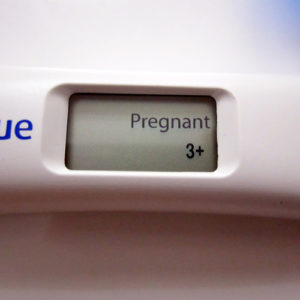Lets’ face it, with so many contraceptive methods available today, finding the right one can feel overwhelming. It’s a big decision for anyone. It’s important to take the time to research and understand your options in order to select a method that fits your lifestyle and needs. This Zoom Baby comprehensive guide explores the most common types of contraception to help you make an informed decision.
Barrier Methods: Condoms
Johnnies, rubbers, Durex, call them what you will. Condoms have been around for yonks. They are one of the most well-known and accessible contraceptive methods. Condoms prevent pregnancy by creating a barrier to block sperm from reaching the egg, and are also effective at protecting against sexually transmitted infections when used correctly. Available for both males and females, condoms come in a range of sizes and are completely hormone-free. Additionally, they can be inexpensive and easy to obtain from places such as supermarkets and petrol stations.
Oral Contraceptive Pills
The contraceptive pill is one of the most popular and widely used hormonal methods in the UK. Taken daily in tablet form, the pill prevents pregnancy by inhibiting ovulation and thickening cervical mucus. It’s important to find the right pill for your body, as side effects can include mood changes, weight gain, and irregular periods.
There are two main types: the combined pill containing estrogen and progestin, and the mini pill with only progestin. Remember, it’s essential to take the pill every day for maximum effectiveness.
Intrauterine Devices (IUDs)
An intrauterine device, or IUD, is a small, T-shaped device inserted into the uterus by a healthcare professional. IUDs can contain either hormones or copper and last between 3-10 years, making them a long-acting and reversible contraceptive option. Once in place, they are over 99% effective at preventing pregnancy, though do not protect against STIs.
Potential downsides include some pain during insertion and irregular bleeding during the first few months as your body adjusts. But for those looking for a low-maintenance, highly effective option, an IUD may be an excellent choice.
Implants
The contraceptive implant is a thin, flexible rod. Sized like a matchstick, it’s inserted just under the skin of the upper arm. This long-acting and reversible method releases progestin into the body to prevent pregnancy for up to 3 years. A medical professional must insert and remove the implant.
A key advantage is its discreet, low-maintenance nature once in place. The implant is over 99% effective at pregnancy prevention. However, side effects can include irregular bleeding, especially in the first few months.
Injections
The contraceptive injection involves getting a shot of the hormone progestin in the arm or buttock every 3 months from your GP or clinic. The hormone is slowly released into the bloodstream, effectively preventing pregnancy during that time. For those who want an easy, fuss-free option with long periods of coverage, the injection may be ideal.
Just remember, you must keep track of your next scheduled injection and return to the clinic on time. Side effects can also include disrupted periods and irregular bleeding between cycles.
Vaginal Rings
The contraceptive vaginal ring is a small, flexible plastic ring that you insert into your vagina yourself once a month. It continuously releases a low, steady dose of estrogen and progestin hormones to prevent pregnancy. The ring offers discreet, convenient birth control that you can control.
However, the ring isn’t recommended for those who cannot use estrogen-based contraception. And proper timing is key—you must remember to insert a new ring once a month to maintain effectiveness.
Factors to Consider When Choosing Contraception
With so many excellent and effective contraceptive options available, selecting the right method for your needs can seem daunting. Here are some key factors to consider during your decision-making process. All of these factors are important considerations:
Effectiveness: Different methods have varying effectiveness rates when it comes to pregnancy prevention. Some are dodgier than others! 😊 Consult your GP or surgery about typical use vs. perfect use rates to understand real-world performance. Ultra effective options like the IUD and implant may be appealing if avoiding pregnancy is your top priority.
Duration of use: Some methods like the pill require you to make sure you control your contraception daily, while long-acting reversible options like the IUD or implant provide years of coverage with little maintenance required. Consider how your chosen method fits with your lifestyle and comfort level.
Interaction with existing health conditions: Certain contraceptives may not be recommended if you have specific medical issues like high blood pressure or migraines with aura. Share your full health history with your doctor.
Plans for the future: What’s on your radar? Are you interested in conceiving a child within the next year? Certain contraceptive methods like the IUD can be removed to allow for pregnancy whenever you’re ready. Other methods may delay a return to fertility.
Menstrual cycle preferences: The IUD, implant, and injection all have the tendency to create irregular or absent periods. If maintaining a predictable monthly cycle is important to you, these may not be the best options.
Cost and convenience: Factor in expenses, accessibility, and ease of use or application when selecting your contraceptive method. Items like a ring or patch require active monthly changes, while implants, IUDs and injections only need attention every few years.
Remember, there is no universally “best” contraceptive. The right choice is the one that aligns with your individual needs, lifestyle, preferences, and comfort level. Be sure to discuss all options thoroughly with your GP.
Zoom Baby is a leading supplier of Pregnancy Tests and Ovulation Test Kits





